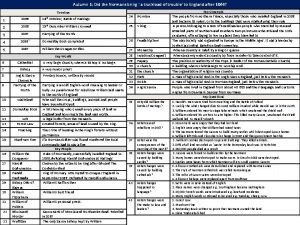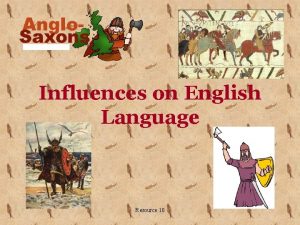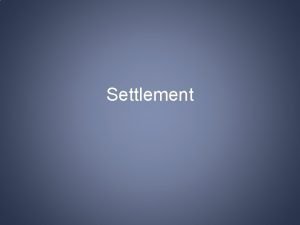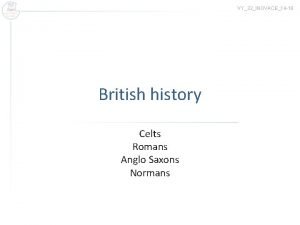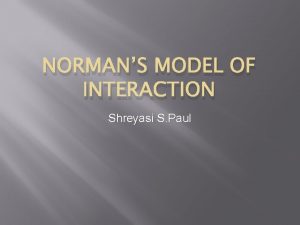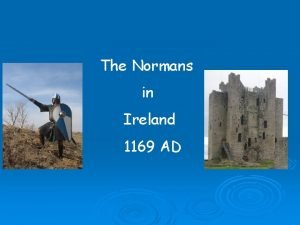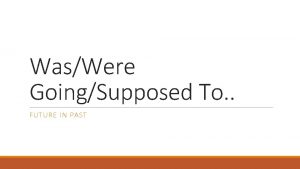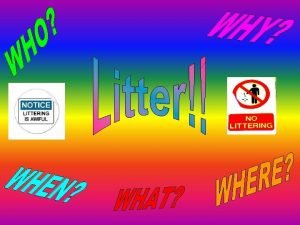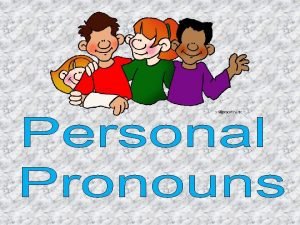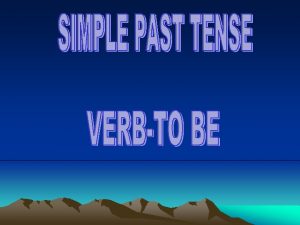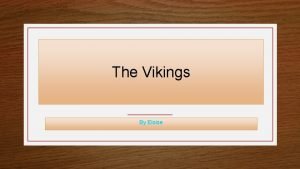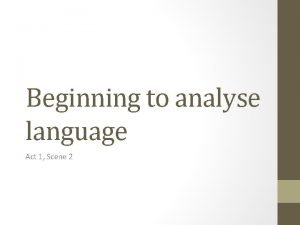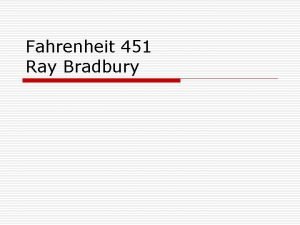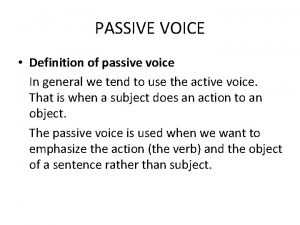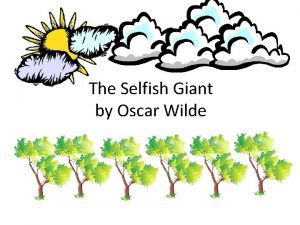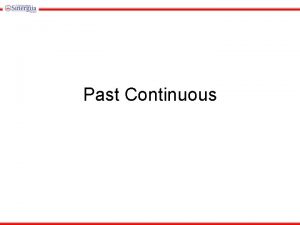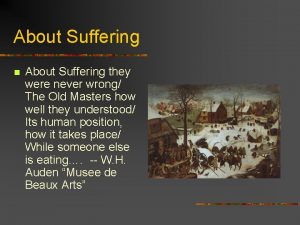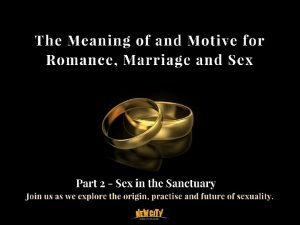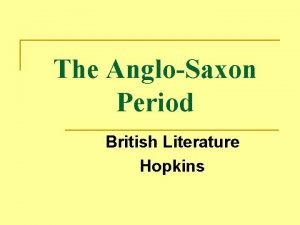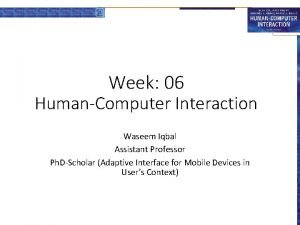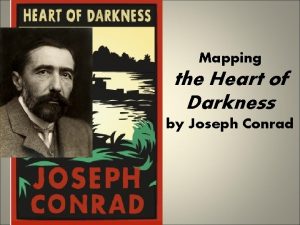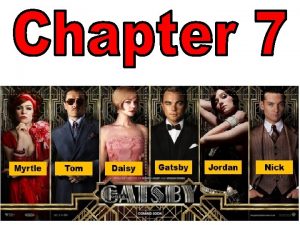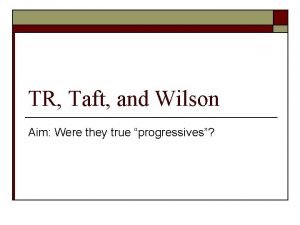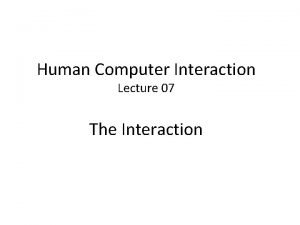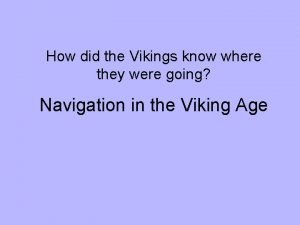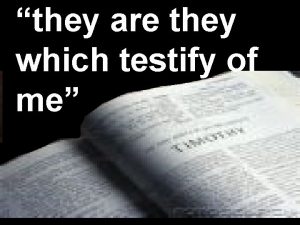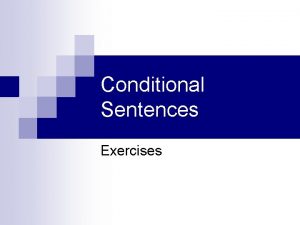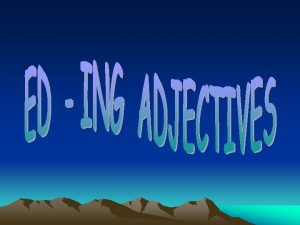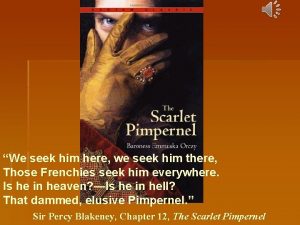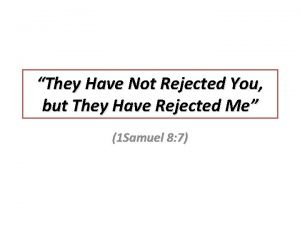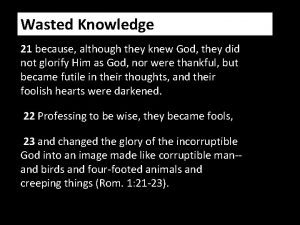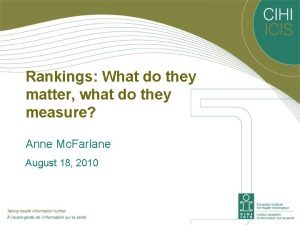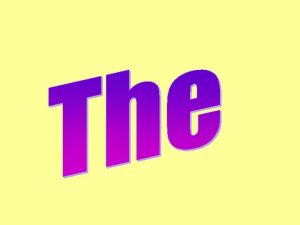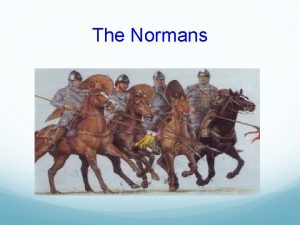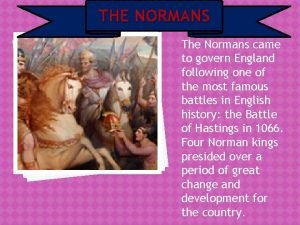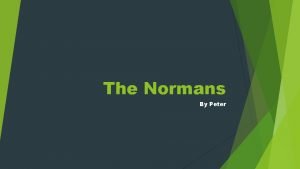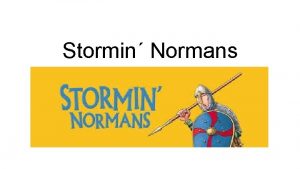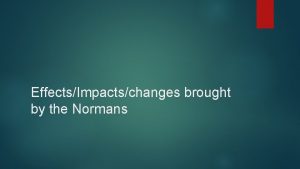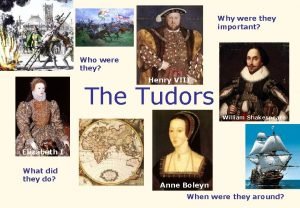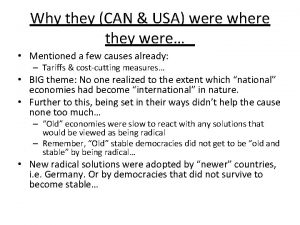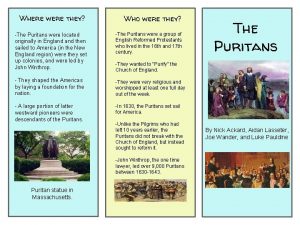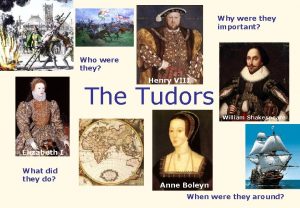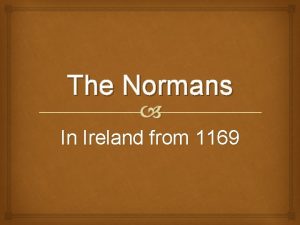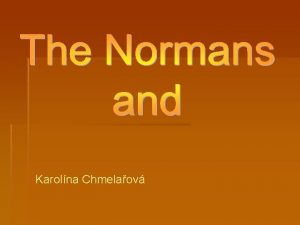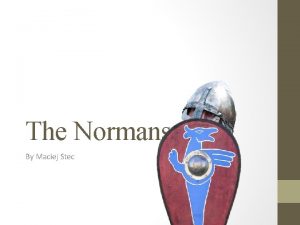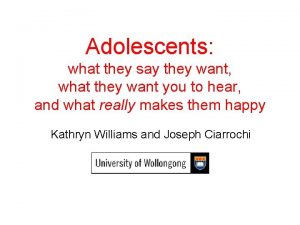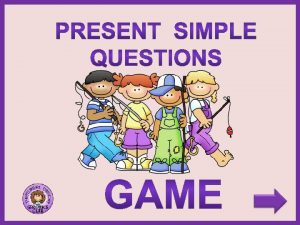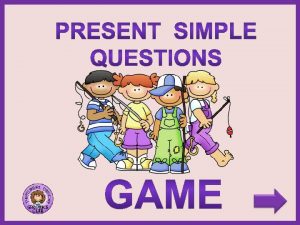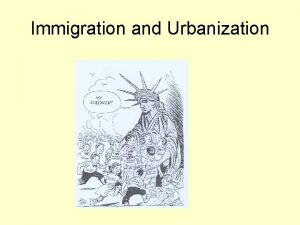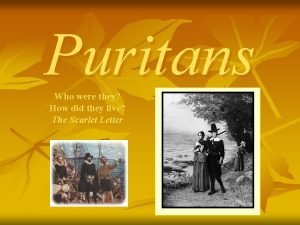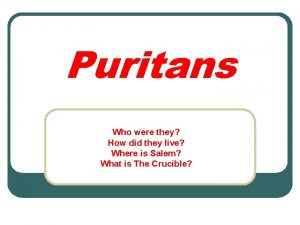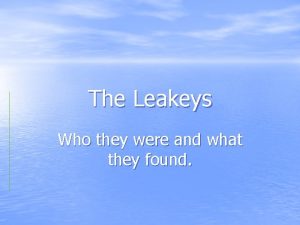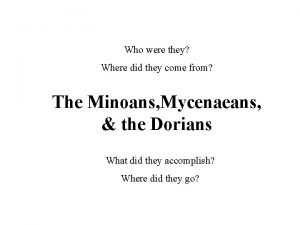The Normans Who were they The Normans are














































- Slides: 46

The Normans

Who were they? • The Normans are descendents from Viking pirates who settled in northern France.

The Norman World • By the year 1000 the Normans were established in Normandy and by the next century they began to extend their military power. • They began to conquer the British Isle’s.


King Harold • Harold was the King of England at the time and he though that the Normans would attack first so he placed his army at the south of England waiting for a battle. • But William and the Normans didn’t show up. Instead the King of Norway had landed up north. • King Harold marched his army north and defeated the king of Norway.


Battle of Hastings: 1066 • The Normans then arrived at caught King Harold of guard. • There were 5000 -7000 men in each army • In 1066 William the Conqueror defeated the English at the Battle of Hastings


The Bayeux Tapestry • The Tapestry is regarded as the Norman version of what happened in 1066. • It is like a cartoon strip picture of the story of the Battle of Hastings. • It is 50 cms high and 70 metres long-it would stretch across the width of a football pitch


Ireland • Dermot Mc. Murrough was King of Leinster. • He wanted to be high king one day. • But he feared the king of Tyrone becoming high king first. • Dermot invited the Normans to help him get more land become high king.

Strongbow • In 1169 the Normans came to help Dermot. • First 400 men came and helped him take over Wexford. • In 1170 Strongbow came and with a Norman army they took over Waterford and Dublin. • In return Dermot promised Strongbow that he could be king of Leinster when Dermot died.

The marriage of Aoife (Dermots daughter) and Strongbow

THE MOTTE AND BAILEY • Built for defence and attack • Control of new territory • Soon wooden keeps were replaced by stone • Sometimes built on ring forts



Motte in Co. Tipperary




The moat of Ardscull is 16. 5 metres high



Inside the keep


Spiral Staircase-Saved space and was useful for defence

The Portcullis was another defence feature

The Siege Tower was an important weapon in attack

The Catapult hurled huge boulders at the castle

PEASANTS KNIGHTS-Manor LORDS-Earls, Barons, Bishops, Abbots KING THE FEUDAL SYSTEM


Norman weapons

A boy started training to bew a knight at the age of seven

At the age of fourteen he became a squire

At the age of 21 he became a Knight


Maynooth Castle was built by the Fitzgeralds

Murder Hole over entrance


A castle under siege


Jousting at Tournaments was a favourite pastime

Norman Ladies

Chess was a favourite indoor pastime

Legacy of the Normans • Language: English • Law and Government: Our laws today and based on English Common law which was brought by the Normans • Towns: Many new towns were formed and they began to divide Ireland into counties • Castles: Churches and abbeys/organisation of church

Legacy of the Normans • Surnames: Fitz, De, Burke, Butler, Costello, Fitzgerald, Power, Roche, Walsh, Savage.
 Mikael ferm
Mikael ferm Did the normans bring a truckload of trouble
Did the normans bring a truckload of trouble Where did the normans come from
Where did the normans come from Where did the normans settle in ireland
Where did the normans settle in ireland Celts romans anglo saxons vikings normans
Celts romans anglo saxons vikings normans 7 stages of donald norman's model
7 stages of donald norman's model What changes did the normans bring to ireland
What changes did the normans bring to ireland Gestaltlovene design
Gestaltlovene design Was/were going to (future in the past)
Was/were going to (future in the past) The pollution they were
The pollution they were I you he we
I you he we Were you at home yesterday
Were you at home yesterday What were the vikings known for
What were the vikings known for Who were they
Who were they We had ... horrible day that we felt depressed
We had ... horrible day that we felt depressed Cannons overcharged with double cracks
Cannons overcharged with double cracks Fahrenheit 451 the hound
Fahrenheit 451 the hound Simple past tense i you we they
Simple past tense i you we they The girl drove the blue car
The girl drove the blue car In a survey of 2480 golfers 15
In a survey of 2480 golfers 15 Where did the children go to play every afternoon?
Where did the children go to play every afternoon? When you phoned i was working in the garden
When you phoned i was working in the garden About suffering they were never wrong
About suffering they were never wrong Luke 13 3 5
Luke 13 3 5 Adam b nudes
Adam b nudes Areas of the screen that behave as if they were independent
Areas of the screen that behave as if they were independent What race were the anglo saxons
What race were the anglo saxons What were they doing when
What were they doing when What are the people in the picture doing?
What are the people in the picture doing? Areas of the screen that behave as if they were independent
Areas of the screen that behave as if they were independent The heart of darkness map
The heart of darkness map How is tom careless in the great gatsby
How is tom careless in the great gatsby Who were they
Who were they Elements of wimp
Elements of wimp How did the vikings know where they were going
How did the vikings know where they were going Jordan 14
Jordan 14 If they have time in the weekend they will come to see us
If they have time in the weekend they will come to see us Grammar rules frustrate me they're not logical they are so
Grammar rules frustrate me they're not logical they are so We seek him here we seek him there
We seek him here we seek him there For they not know what they do
For they not know what they do They have not rejected you
They have not rejected you Knowledge not shared is wasted
Knowledge not shared is wasted Rankings: what are they and do they matter?
Rankings: what are they and do they matter? V cc
V cc Làm thế nào để 102-1=99
Làm thế nào để 102-1=99 Hát lên người ơi
Hát lên người ơi Sự nuôi và dạy con của hổ
Sự nuôi và dạy con của hổ

